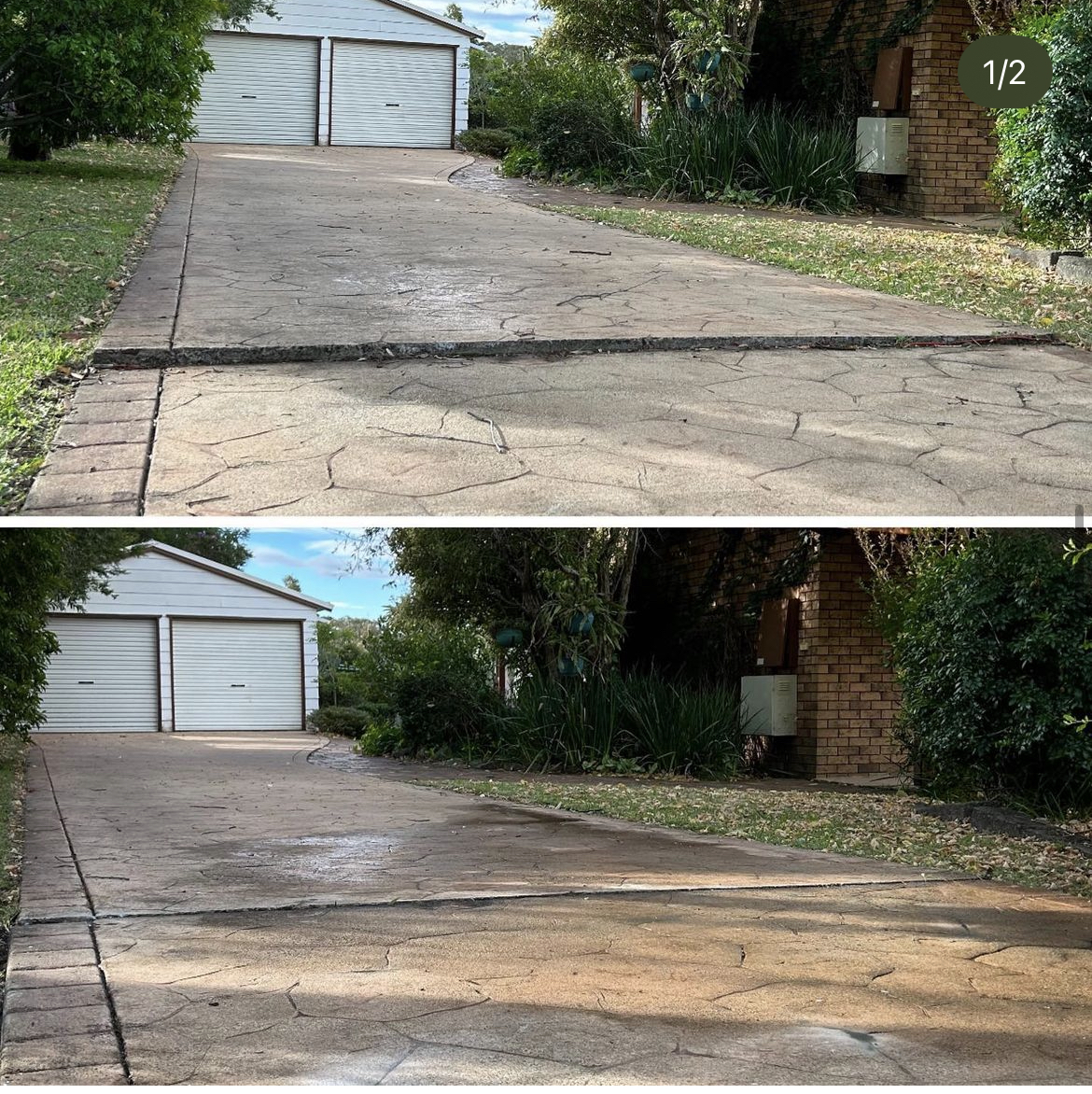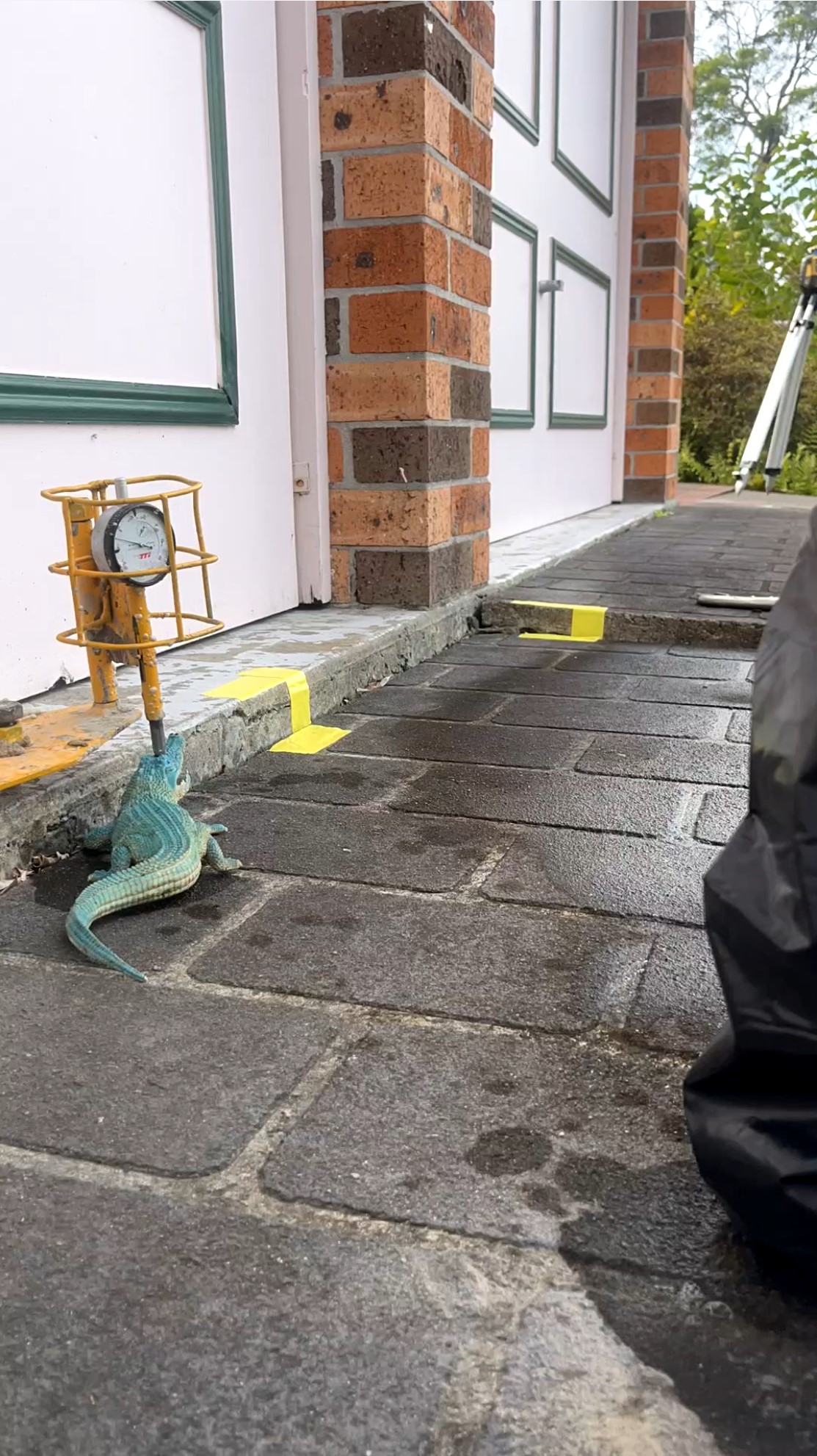
Raise & Re-level Driveway
Concrete Driveway Re-levelling Solutions
Is your driveway sinking, uneven, or subsiding?
A sunken or subsiding driveway not only looks unsightly but can also pose safety hazards and cause long-term damage to your property.
At Mainmark Ground Engineering, we specialise in professional driveway re-levelling solutions, restoring the level, stability, and appearance of your driveway without the need for costly, disruptive replacements.
Expert Driveway Relevelling
A sinking driveway can occur due to various factors such as soil movement, water erosion, or poor initial construction. Over time, these issues cause your driveway to become uneven and unstable. Mainmark’s advanced driveway levelling techniques offer a fast, cost-effective, and non-invasive solution to relevel your driveway, preventing further damage.
Our innovative Teretek® resin injection technology lifts and re-levels driveways with accuracy. Whether you’re dealing with minor dips or more severe subsiding driveways, our team of experts will ensure your driveway is restored to its original level without the need for excavation.
Re-level Driveway Video
Relevel Your Driveway with Teretek® Technology
Watch How Teretek® Brings Uneven Driveways Back to Level

Driveway Slab Jacking
Common Driveway Problems We Fix
The fast, non-disruptive sinking driveway repair
- Sinking Driveways: Over time, the soil beneath your driveway can shift, leading to uneven surfaces and cracks. Our Teretek resin injection technology corrects this issue by filling voids and lifting the driveway back to a level position.
- Subsiding Driveways: Subsidence occurs when the ground beneath your driveway loses strength, often due to poor soil conditions or erosion. Our team will identify the cause of your subsiding driveway and provide a tailored solution to restore stability.
- Uneven Driveways: If your driveway is suffering from dips, cracks, or uneven surfaces, we can restore it to its original level, ensuring a smooth, safe surface for vehicles and pedestrians.
Before After
Concrete Driveway Crack Repair:
Before & After Driveway Re-levelling
At Mainmark, we specialise in driveway re-levelling, offering an efficient and non-invasive solution for sinking or uneven driveways. Using our advanced Teretek® resin injection technology, we raise and re-level your driveway, restoring it to its original level without the need for costly and disruptive replacements. Our process ensures long-lasting results by addressing the root cause of the problem, such as soil subsidence or voids, all while minimising downtime and disruption. Whether it’s a sunken or cracked driveway, Mainmark’s innovative approach guarantees a durable outcome, back by our 50 year product warranty.
Mainmark Google Reviews
Features & Benefits
Mainmark’s Solutions & Technologies

Fast
Our technologies have fast curing times and treated areas can be used immediately or without the delays compared to traditional repair methods.

Environmentally Inert
Our technologies use an inert material that is non-toxic and does not leach into the environment or affect the treated area.

Non-Invasive
Our solutions are of surgical nature compared to traditional methods.

Cost-Effective
Compared to traditional methods, our solutions are more cost-effective, with minimal disruption to the area.
Causes of Sinking Concrete Driveways
The Underlying Reasons for Driveway Subsidence
Your concrete driveway undergoes significant wear and tear daily. It endures the weight of vehicles, foot traffic, and the harsh effects of natural elements like wind, rain, hail, extreme temperatures, and even chemical spills like motor oil and gas.
Over time, this relentless exposure can result in cracks and potholes, along with the risks they pose. Before opting for a costly replacement, consider the potential of a relevel driveway solution.
Soil Types
Moisture levels in the soil affect reactive clays as they expand and contract.
Oversaturated clays lose their strength resulting in footing subsidence. In loosely packed soils, such as sand and silt, the fine particales in the soil can wash away causing the footing to settle.
Tree Roots
Neighbouring trees and shrubs absorb water using their roots causing movement in the soil as it soaks up moisture in the ground.
Footing Systems
Poor foundation design or inadequate compaction of soil during construction results in movement of the structure as it settles.
Excess Water
Burst or cracked water pipes including blocked sewage and rain gutters can oversaturate clay soils or wash fine particles from sand and silt soils and cause footings to subside.
Extreme or Seasonal Weather
Natural disasters such as flooding, drought and earthquakes affect soil moisture levels in particular clay resulting in excessive foundation movement.
Renovation or Construction
Vibration caused by nearby construction activity such as drilling or piling, or heavy road traffic causes soil particles to shift and settle, resulting in ground subsidence.
Get a quote
Arrange a site assessment in 3 simple steps:
Step 1
Submit your enquiry using our online form. Include a brief message about the type of foundation issues you are experiencing.
Step 2
Our friendly customer service team will be in touch to schedule a site assessment that suits you.
Step 3
One of the Mainmark experts will visit your home or property, assess the damage, and ascertain the likely cause. They will establish the approach needed, creating a plan specific to the needs of your building and provide you with a detailed quote.
FAQ
Frequently Asked Questions
We’ve compiled answers to some of our customers’ most common questions.
However, we understand that your situation may be unique, and you might have specific questions not covered here.
If you’re worried about subsiding concrete, call Mainmark for an obligation free expert opinion.
Is it normal for concrete driveways to crack?
Yes, it is relatively normal for concrete driveways to develop cracks over time due to factors like environmental stress, ground movement, and natural aging of the material. Regular maintenance and timely repairs can help manage and minimise these cracks.
How do you know if concrete crack is serious?
A concrete driveway crack is considered serious if it’s wider than 0.3 mm, indicating potential structural concerns. Cracks that widen enough to create tripping hazards or allow water seepage should be addressed promptly.
Cracks wider than 3.2 mm in the driveway are particularly concerning and require attention. While small hairline cracks may not immediately signal a structural issue, larger, more noticeable cracks, especially those that change over time, should be professionally evaluated and repaired to maintain the driveway’s integrity and safety.
How much does concrete driveway repair cost?
The cost of concrete driveway repair varies widely depending on several factors, such as the extent of the damage, the repair method used, and the size of the driveway. For minor crack repairs using methods like sealing, costs can be relatively low. However, more extensive repairs involving resin injection technologies like Teretek® or complete driveway resurfacing can be more costly. On average, repair costs can range from a few hundred to several thousand dollars. It’s best to get a customised quote from a professional service like Mainmark for an accurate estimate based on your specific driveway’s condition.
How long does driveway crack repair last?
Driveway crack repair, especially when done using high-quality methods and materials, can last for many years. Mainmark’s advanced resin injection technique for driveway repair, coupled with their expertise, offers a durable solution.
Significantly, Mainmark provides a 50-year product warranty for their driveway repair services. This warranty underscores the longevity and quality of their repairs, ensuring that the driveway remains in excellent condition for decades, safeguarding both the aesthetic appeal and structural integrity of the property.































